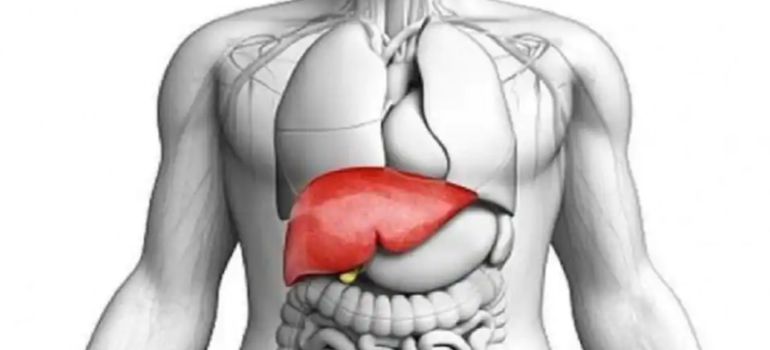
Fatty liver disease is a prevalent health concern characterized by the accumulation of excess fat within the liver. While the liver naturally contains a small amount of fat, when it surpasses 5-15 percent of the liver's total weight, it signifies fatty liver disease, which can be graded as 1, 2, or 3 based on severity.
Symptoms of Fatty Liver Disease:
Causes of Fatty Liver Disease:
Natural Remedies for Fatty Liver:
Liver-Boosting Foods: Incorporate plant-based foods, including fruits, vegetables, and healthy fats, to reduce inflammation and aid insulin utilization. Recommended foods:
Green Tea: Rich in catechins, green tea reduces body fat and supports liver health.
Mediterranean Ketogenic Diet: This diet, rich in whole grains, fruits, vegetables, legumes, and healthy proteins, such as sardines and omega-3 fatty acids, aids in metabolic syndrome improvement.
Vitamin C and E: These antioxidant vitamins combat oxidative stress, a key player in non-alcoholic fatty liver disease (NAFLD). Vitamin E is particularly beneficial for adults with NAFLD who lack cirrhosis or diabetes.
Resveratrol: Found in red wine, raw cocoa, and berries, resveratrol reduces NAFLD severity. It can also be taken as a supplement.
Curcumin: This active compound in turmeric helps reduce liver fat deposits and prevents fatty liver progression due to its anti-inflammatory and potent antioxidant properties.
The Promise of Natural Remedies: Ongoing Research
Ongoing research seeks to further understand and harness the potential of natural remedies for fatty liver disease. Evidence-based approaches offer hope for individuals looking to manage this condition holistically and effectively. Embracing a liver-friendly diet and a balanced lifestyle, guided by healthcare providers, can pave the way for a healthier, more vibrant future.
The Role of Herbal Remedies: Unlocking Nature's Potential
In the pursuit of natural remedies for fatty liver disease, herbal interventions have gained attention for their potential to complement traditional treatments. These herbs are rich sources of bioactive compounds with hepatoprotective properties. Here are some noteworthy herbs:
Milk Thistle (Silybum marianum): Milk thistle is renowned for its liver-protective effects. It contains silymarin, a compound known to reduce liver inflammation and support liver regeneration. Some studies suggest it may help manage fatty liver disease.
Dandelion (Taraxacum officinale): Dandelion is traditionally used to support liver health. It may aid in detoxification, reducing oxidative stress, and preventing fat accumulation in the liver.
Berberine (Berberis vulgaris): Berberine, derived from various plants like barberry, has shown promise in improving insulin sensitivity and reducing liver fat content. It may be beneficial for individuals with fatty liver disease.
Artichoke (Cynara scolymus): Artichoke has hepatoprotective and antioxidant properties. It can help reduce liver enzyme levels and support overall liver function.
Ginger (Zingiber officinale): Ginger's anti-inflammatory and antioxidant properties make it a potential ally in managing fatty liver disease. It may help reduce liver fat and inflammation.
Turmeric (Curcuma longa): Curcumin, the active compound in turmeric, offers potent anti-inflammatory and antioxidant benefits. It has demonstrated the ability to reduce liver fat and improve liver health.
Schisandra (Schisandra chinensis): This adaptogenic herb has been studied for its liver-protective effects. It may help reduce liver enzymes and inflammation associated with fatty liver disease.
Licorice (Glycyrrhiza glabra): Licorice root has anti-inflammatory and antioxidant properties. It may aid in reducing liver fat accumulation and promoting liver health.
Scientific Evidence and Herbal Remedies: What Research Says
While herbal remedies show promise, it's essential to consider the scientific evidence supporting their efficacy in managing fatty liver disease. Here's a glimpse of the research:
Milk Thistle: Studies suggest that milk thistle, particularly its active component silymarin, may help improve liver enzyme levels and reduce liver inflammation in individuals with NAFLD.
Dandelion: Research indicates that dandelion extracts may have hepatoprotective effects by reducing oxidative stress in the liver.
Berberine: Some studies have found that berberine can improve insulin sensitivity, reduce liver fat content, and lower liver enzyme levels in individuals with fatty liver disease.
Artichoke: Artichoke extracts have demonstrated the potential to reduce liver fat and improve liver enzyme levels in individuals with NAFLD.
Ginger: Ginger's anti-inflammatory and antioxidant properties have been explored in the context of liver health, showing benefits in reducing liver fat and inflammation.
Turmeric: Curcumin's hepatoprotective properties have been well-documented in research, with studies indicating its potential to reduce liver fat and inflammation.
Schisandra: Limited studies suggest that schisandra may help lower liver enzyme levels and reduce inflammation in individuals with liver disease.
Licorice: Research on licorice's effects on liver health is in the early stages, but its anti-inflammatory and antioxidant properties make it a subject of interest.
The Holistic Approach: Integrating Herbal Remedies
For individuals seeking a holistic approach to managing fatty liver disease, integrating herbal remedies into their daily routines holds promise. These natural options, when combined with dietary and lifestyle modifications, can complement traditional medical treatments.
It's important to note that herbal remedies should be used under the guidance of a healthcare provider. What works best can vary from person to person, and a healthcare professional can tailor a treatment plan to individual needs.
In Conclusion: A Holistic Path to Liver Health
Fatty liver disease is a prevalent condition with significant health implications. While medical guidance remains essential, natural remedies and herbal interventions offer complementary avenues to support liver health. As ongoing research sheds light on their effectiveness, individuals have the opportunity to embrace a holistic approach in their journey toward a healthier liver and a brighter, more vibrant future.
This comprehensive exploration of fatty liver disease, natural remedies, and the role of herbs in liver health offers valuable insights for those seeking evidence-based, holistic solutions.